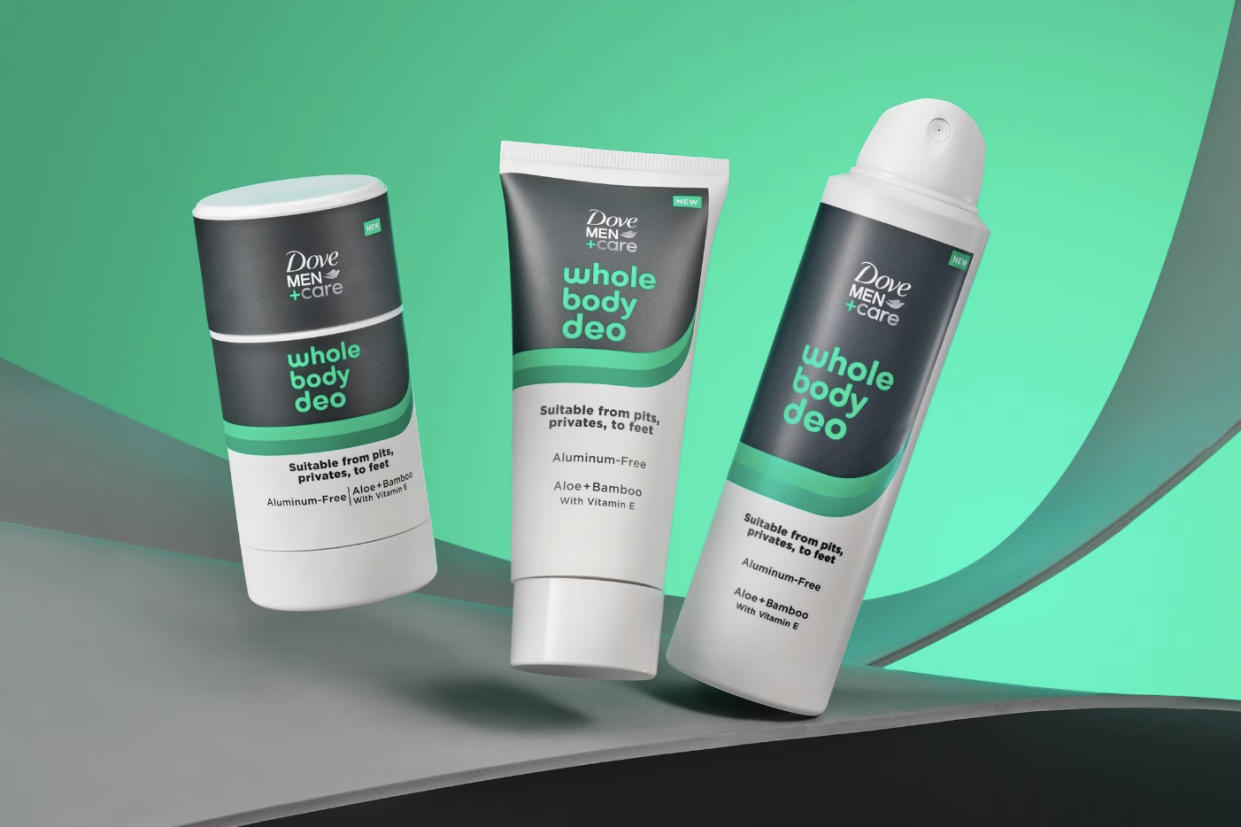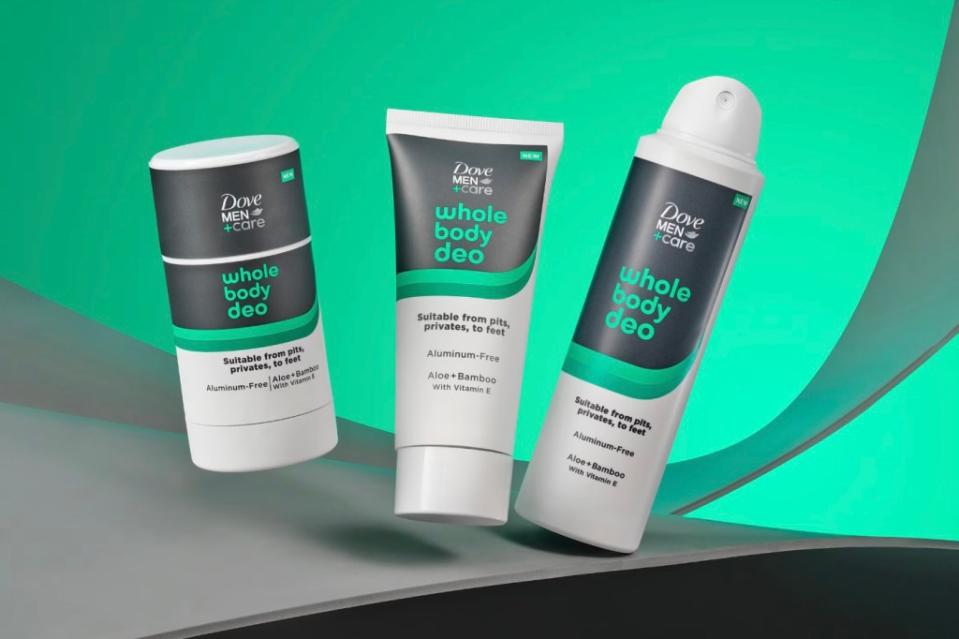Everyone is now using full-body deodorant: ‘People are just struggling with body odor’

You load up on deodorant, only to still smell faintly of body odor at the end of the day — what gives?
Because B.O. is caused by the mixture of bacteria and sweat on the skin, it isn’t just reserved for the underarms, prompting some people to take multiple showers a day or spritz a little too much fragrance to mask the aroma.
“We’re finding that people are just struggling with body odor in general,” Megan Smith, Unilever’s senior manager of personal care R&D, told Women Wear Daily.
Now, as more people return to the office, deodorant sales have skyrocketed after years spent working remotely from home and seemingly foregoing their underarm care.
As consumers began applying underarm deodorant to their feet, groin or chest, according to WWD, the demand for full-body deodorant ushered in a new wave of products to fight the unfavorable stench throughout the day from household names like Dove, Secret and Old Spice.
“Men, they’re focused around their chest and private areas, but for women, it’s under bras,” Smith added.
Unilever research found that 15% of Americans sought a whole-body product for odor, while a survey by the Dove Men + Care line concluded that 76% of men would try a whole-body deodorant, while only 2% were current users.

“I’d credit this [popularity] to consumers themselves being willing to share an honest yet often hidden unmet need — one that affects a large portion of the population on a daily basis,” said Freddy Bharucha, the president of the North America personal care and beauty ecosystem at Proctor & Gamble Beauty.
Social media, he continued, has encouraged transparency and dialogue surrounding B.O.
“Body odor is one of those topics that when people find the courage to open up and discuss, it creates even more conversation and commonality,” he added.
Lumē, founded by OB-GYN Dr. Shannon Klingman, began fighting whole-body odor back in 2017 — before it was cool, as the kids say. Klingman said that women had been incorrectly diagnosed with bacterial vaginosis when the below-belt odors were caused by a concoction of bacteria and bodily fluids.
Their deodorizing products, which are sold at major retailers like Target and Walmart, use mandelic acid to eliminate the smell and have since surpassed $100 million in yearly sales, per WWD. Its success influenced the creation of Mando, a line marketed for men.
“It was our launch into retail one year ago that made everyone else aware that, ‘Hey, this is a very large white space,’ and the way that we were talking about odor control was incredibly disruptive,” Klingman explained.
But with various areas that need application, a stick or spray isn’t always preferred. Some companies have launched creamy formulas for “precision application” and to avoid using the same applicator on various body parts.
Akt London offers a balm, while Hume Supernatural, available in more than 2,000 stores in the U.S., sells a cream.
“This space is just exploding so much that a lot of the retailers now understand, ‘Oh, what is all-body deodorant and how do I get it into my store?’” Hume’s co-founder and chief executive officer Jeremy Horowitz told WWD. “We’ve been approached by more people than we ever have before.”

